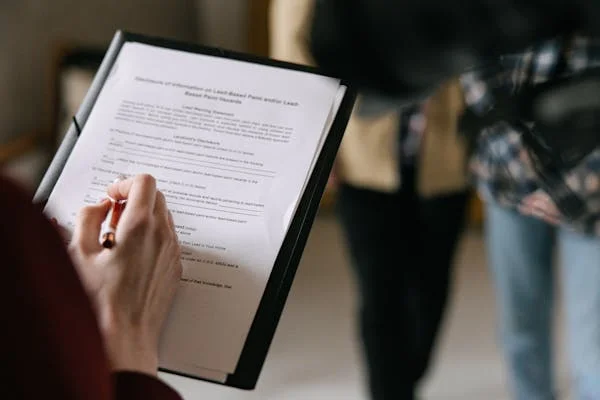Owning property can sometimes seem overwhelming and complex to navigate through successfully. Whether you’re buying an estate or dealing with issues related to it, ensuring that property ownership is legally verified is essential in these situations of uncertainty and doubt alike. This helpful guide is designed to make this verification process easier by providing explanations and actionable steps that make the task of verifying ownership efficient.
Understanding Property Ownership Records
Land or building ownership documents are important as they officially confirm who owns property and help avoid conflicts by keeping information clear and reliable. Government agencies or local authorities often oversee these records to ensure their accuracy and currency. Viewing these documents can offer details about ownership and any possible legal claims or restrictions on the property.
Exploring Public Records
Researching records is an effective way to confirm property ownership. Government or local office resources, accessible online or in person, allow property searches by address or owner name. These databases often include current ownership details, legal descriptions, and past ownership history. If online options are limited, visiting county or city offices can provide the necessary information for accurate property verification.
Utilizing Title Companies
Title companies focus on investigating and validating property ownership rights to make the process smoother for individuals who may not be well-versed in matters. Their thorough title searches involve delving into records to validate ownership and identify any possible concerns related to the property. Furthermore, title companies frequently offer title insurance as a safeguard for buyers in case of challenges or disagreements regarding ownership issues.
Connecting with Real Estate Professionals
Real estate agents and brokers have a wealth of knowledge about property markets and legal regulations that can be beneficial in confirming ownership details. Rely on their expertise to guide you through the verification process smoothly. Seasoned professionals have connections to databases and networks that make verification efficient. They can also help clarify any documents so you fully grasp the significance of property records.
Utilizing Online Property Databases
In the era of technology and the internet, many online platforms provide access to property information databases. These platforms gather data from records, giving users insights into properties. By inputting an address or the owner’s name, people can easily retrieve details about a property’s past, ownership information, and any legal issues linked to it. While certain platforms may necessitate subscriptions, a lot of them allow access to details, making them a handy choice for preliminary investigations.
Understanding Legal Descriptions
Legal descriptions confirm ownership of a property by providing precise information about its boundaries and location. This avoids any confusion or disputes that may arise regarding the specific piece of land in question, often mentioned in deeds or property records.
Checking for Liens or Encumbrances
Liens or encumbrances are rights that state claims on a property due to outstanding debts or responsibilities that haven’t been settled yet. Confirming ownership involves investigating these claims since they could impact the property’s worth or ability to be transferred to another party. Details regarding any liens on a property are usually found in records. Recognizing these claims in advance enables buyers or parties concerned to handle them to finalize deals and guarantee a seamless transfer of ownership.
Consulting Legal Professionals
Legal experts, like real estate lawyers, provide support in confirming property ownership rights. They possess knowledge in interpreting paperwork and dealing with potential conflicts or issues related to local laws. Consultation with professionals guarantees scrutiny and a sense of security, especially in transactions concerning substantial investments or complex legal affairs.
Ensuring Due Diligence
Engaging in research and practicing consideration continues to be crucial when confirming property ownership. Collect information from sources and compare data while also consulting with experts to gain a thorough grasp of the property’s legal standing. Following these measures helps reduce the likelihood of facing challenges and enhances trust in property dealings.
In summary
Legally confirming property ownership entails using records properly and seeking assistance from experts to interpret paperwork effectively. Young individuals who follow these procedures will be able to navigate the intricacies of property ownership with assurance. Be it purchasing a house, resolving an issue, or conducting research, having a grasp of verifying ownership aids in making well-informed choices and protecting investments.





